Mental Eating

How does nutrition impact women's mental health ?
Nutrition has a significant impact on women's mental health. Eating a balanced diet with adequate amounts of vitamins, minerals, and nutrients can help improve mental health. Avoiding processed foods and sugary drinks, drinking enough water, eating breakfast regularly, and getting enough sleep are also essential for good mental health. By taking care of their bodies through nutrition, women can take care of their minds.

Can eating habits affect my level of stress before an exam ?
Eating habits can significantly affect your level of stress before an exam. Proper nutrition is crucial for maintaining physical and mental well-being, which impacts your ability to handle stress and perform well during exams. Here are some ways in which eating habits can influence your stress levels: 1. **Blood Sugar Regulation**: Eating balanced meals and snacks throughout the day helps maintain stable blood sugar levels, avoiding mood swings and irritability that can increase stress. 2. **Brain Function**: Your brain requires essential nutrients to function properly. Foods rich in vitamins, minerals, and antioxidants support cognitive function and improve focus, memory, and concentration. 3. **Gut-Brain Connection**: There is a strong connection between your gut health and your mental state. Eating probiotic-rich foods promotes a healthy gut microbiome associated with better mood and reduced stress. 4. **Hydration**: Staying hydrated is essential for overall well-being and can impact your stress levels. Dehydration can lead to headaches, fatigue, and difficulty concentrating, adding to pre-exam stress. 5. **Caffeine Intake**: Moderate amounts of caffeine can provide a temporary boost in alertness, but excessive consumption can increase anxiety and interfere with sleep quality, important for stress management and cognitive performance. 6. **Comfort Eating**: Some people turn to food as a coping mechanism when stressed or anxious, leading to overeating or unhealthy choices that may provide short-term relief but ultimately exacerbate stress due to feelings of guilt or discomfort. By prioritizing nutrient-dense foods, staying hydrated, and avoiding excessive caffeine and comfort eating, you can support your body and mind in managing stress more effectively before an exam.
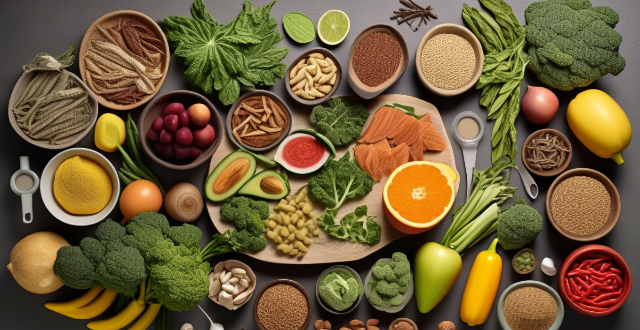
What are some strategies for eating a more plant-based diet ?
Strategies for eating a more plant-based diet include embracing whole foods, experimenting with alternative proteins, getting creative with meal planning, learning about nutritional balance, educating yourself, supporting sustainable practices, and connecting with others. These steps can help you transition to a healthier and environmentally friendly way of eating while ensuring you receive all the necessary nutrients.
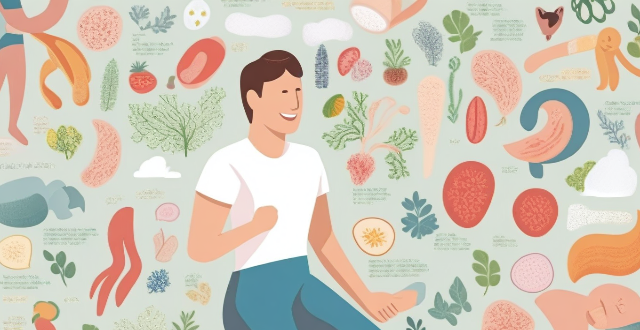
How do celebrities manage their mental health amidst hectic schedules ?
Managing mental health is crucial for celebrities with hectic schedules, and they employ various strategies to maintain their well-being. These include prioritizing self-care through exercise, healthy eating, and sleep; seeking professional help when needed; setting boundaries to avoid burnout; building a support system of friends, family, and colleagues; engaging in hobbies and interests for stress relief; and practicing mindfulness and meditation to reduce anxiety. By implementing these strategies, celebrities can maintain good mental health and thrive both personally and professionally.

How do competitive sports impact mental health ?
Competitive sports have a significant impact on mental health, with both positive and negative effects. Positive effects include increased self-esteem and confidence, improved social skills and teamwork, stress reduction and relaxation, and goal setting and achievement. Negative effects include pressure to perform, fear of injury, burnout and overtraining, and unhealthy weight management practices. It is essential for athletes to manage the pressures associated with competition and prioritize their mental and physical health above all else. Seeking support from coaches, teammates, friends, and family members can also help athletes navigate the challenges of competitive sports and maintain good mental health.

How can I make healthier choices when eating out at restaurants ?
The text offers a comprehensive guide on how to make healthier choices when eating out at restaurants. It outlines strategies such as planning ahead, starting with a salad, controlling portion sizes, choosing cooking methods wisely, being mindful of sauces and condiments, drinking water, not fearing special requests, and practicing mindful eating. These tips aim to help individuals maintain a balanced and healthy lifestyle while still enjoying dining out experiences. The key takeaways are the importance of moderation, making informed choices, and listening to one's body to avoid overeating.

How can schools improve student mental health ?
Improving student mental health is crucial for academic success and overall well-being. Schools can help by creating a supportive environment, implementing mental health programs, providing access to resources, promoting healthy habits, addressing bullying and harassment, offering extracurricular activities, monitoring academic pressure, and encouraging self-care. By implementing these strategies, schools can create an environment that supports the mental health of all students, allowing them to thrive both academically and personally.

What is the impact of social media on women's mental well-being ?
Social media has become an integral part of our daily lives, and it has both positive and negative impacts on women's mental well-being. In this article, we will discuss the various ways in which social media affects women's mental health. ### Negative Impacts: #### 1. **Comparison and Jealousy** One of the most significant negative impacts of social media on women's mental well-being is the constant comparison and jealousy that arises from seeing other people's highlight reels. Women often compare themselves to others on social media, leading to feelings of inadequacy and low self-esteem. This can result in anxiety, depression, and even eating disorders. #### 2. **Cyberbullying and Harassment** Social media platforms are also notorious for cyberbullying and harassment, particularly towards women. Online harassment can take many forms, including trolling, stalking, sexual harassment, and doxxing. These actions can have severe consequences on a woman's mental health, leading to trauma, anxiety, and depression. #### 3. **Addiction and Time Management** Social media addiction is another issue that affects women's mental well-being. Spending excessive time on social media can lead to procrastination, reduced productivity, and poor time management skills. This can cause stress, anxiety, and feelings of guilt, ultimately affecting a woman's overall mental health. #### 4. **Body Image Issues** Social media is flooded with images of perfect bodies and beauty standards, which can negatively impact a woman's body image. Constant exposure to these unrealistic beauty standards can lead to body dysmorphia, eating disorders, and low self-esteem. ### Positive Impacts: Despite the negative impacts, social media also has some positive effects on women's mental well-being. #### 1. **Support and Community** Social media provides a platform for women to connect with like-minded individuals and form supportive communities. These online communities can offer emotional support, advice, and encouragement, helping women cope with various issues they face in their personal and professional lives. #### 2. **Education and Awareness** Social media is an excellent source of information and education on various topics related to women's health, such as menstrual hygiene, reproductive rights, and breast cancer awareness. This increased awareness can empower women to make informed decisions about their health and well-being. #### 3. **Self-expression and Creativity** Social media platforms provide women with an opportunity to express themselves creatively through writing, photography, art, or other forms of content creation. This creative outlet can serve as a therapeutic tool for women to cope with stress, anxiety, or depression. #### 4. **Career Opportunities** Social media has opened up numerous career opportunities for women in fields such as digital marketing, content creation, and influencer marketing. These opportunities allow women to pursue their passions while maintaining flexible work schedules that accommodate their personal lives. In conclusion, social media has both positive and negative impacts on women's mental well-being. While it can lead to comparison, jealousy, cyberbullying, addiction, and body image issues, it also provides support, education, self-expression, and career opportunities. It is essential for women to be aware of these impacts and use social media mindfully to maintain their mental health and well-being.

What are some tips for meal prepping to promote healthy eating habits ?
Meal prepping is an excellent way to promote healthy eating habits. Here are some tips: 1. Plan your meals based on your dietary needs and preferences. 2. Create a shopping list of all the ingredients you'll need for the week. 3. Cook in bulk and choose recipes that can be easily portioned out. 4. Pay attention to portion sizes to avoid overeating. 5. Stay hydrated by carrying a reusable water bottle with you throughout the day.

What are some healthy eating tips for weight loss ?
To achieve weight loss, focus on eating a balanced diet rich in proteins, complex carbohydrates, and healthy fats. Practice portion control, stay hydrated, plan your meals, and limit processed foods. Incorporate fiber-rich foods, be mindful of liquid calories, and don't skip meals. Cooking at home allows for better control over ingredients and portions. Listen to your body's hunger cues and stop eating when comfortably full. These tips promote sustainable weight loss by nourishing the body rather than depriving it.

How do I avoid getting sick from eating local street food ?
Eating local street food is a great way to experience the culture and flavors of a new place. However, it can also be a source of foodborne illness if you're not careful. Here are some tips to help you avoid getting sick from eating local street food: Choose busy stalls or restaurants that appear clean and well-maintained. Avoid raw or undercooked meat and seafood, as they can harbor harmful bacteria and parasites. Be wary of street vendors selling pre-packaged foods, as these items can sometimes be exposed to contaminants during storage and handling. Use bottled water for drinking and cleaning utensils before eating. Bring your own reusable utensils to reduce your exposure to potentially harmful chemicals found in some plastic utensils. Practice good hygiene habits such as washing your hands before eating and avoiding touching your face while eating.

How do I use chopsticks properly when eating Japanese food ?
Using chopsticks is an art form in Japan, and there are certain etiquette rules that you should follow to show respect for the culture. Here's a step-by-step guide on how to use chopsticks properly when eating Japanese food: 1. Holding the Chopsticks: Hold the first chopstick (the one closer to the tip of the food) like a pencil, resting it between your thumb and index finger. This is your stationary chopstick. Place the second chopstick (the one closer to the end of the food) underneath the first chopstick, resting on your ring finger. This is your moving chopstick. 2. Picking Up Food: Use the tips of the chopsticks to scoop up food rather than pincing it with the ends. This is considered more polite and traditional. For larger pieces of food, it's acceptable to use both chopsticks to pick them up. For smaller items, try using just one chopstick if possible. 3. Eating: If you need to dip your food in soy sauce or another sauce, do so lightly and minimally. Overdoing it can be seen as wasteful. Place the food in your mouth from the chopsticks without making any noise. Chew with your mouth closed. 4. Chopstick Etiquette: Avoid playing with your chopsticks, tapping them on the table, or leaving them standing in your food. These actions are considered impolite. Never use your chopsticks to point at people or gesture with them. This is rude and associated with funeral rites in Japan. Do not lay your chopsticks across your plate or bowl as this resembles incense sticks at a funeral. Instead, rest them on the chopstick rest provided or on the edge of your dish. 5. After Eating: It's common to wipe the ends of the chopsticks before and after use with the small towel or oshibori provided. If you're at a restaurant, leave the chopsticks as they are when you finish eating. Do not put them back in their original packaging or wrap them up. By following these guidelines, you'll not only avoid offending anyone but also show that you respect and appreciate Japanese dining culture. Remember, practice makes perfect!
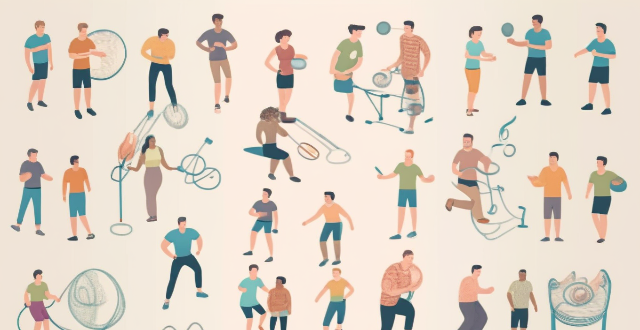
How do athletes cope with the mental stress of competition ?
Athletes employ various strategies to cope with mental stress during competitions, including visualization and imagery, breathing techniques, goal setting, social support, mindfulness and meditation, professional help, and maintaining healthy lifestyle habits. These methods range from mental preparation techniques to seeking professional guidance and engaging in leisure activities for relaxation and enjoyment. By incorporating these strategies into their routines, athletes are better equipped to handle the psychological demands of competition.

How do celebrities influence the perception of mental health and wellness among their followers ?
Celebrities significantly influence their followers' perception of mental health and wellness. They can positively impact by sharing personal struggles, promoting wellness practices, and reducing stigma around mental health issues. However, they might also negatively affect through glamorizing stressful lifestyles, overemphasizing appearance, promoting unhealthy coping mechanisms, sharing misinformation, and setting unrealistic expectations about recovery. It is crucial for followers to critically engage with celebrity content regarding mental health and seek professional guidance when needed.
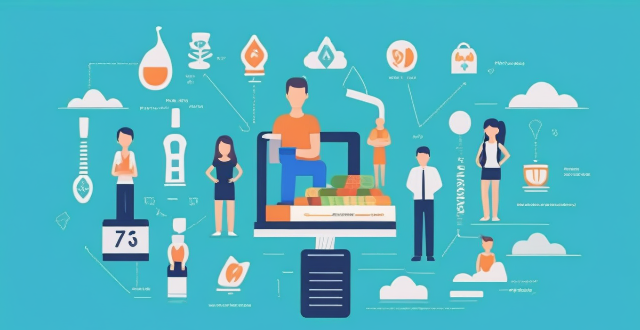
How often should I be eating throughout the day on a fitness meal plan ?
When it comes to following a fitness meal plan, determining how often you should eat throughout the day can vary based on individual goals, preferences, and dietary restrictions. However, there are some general guidelines that can help you establish a balanced eating schedule. Importance of Eating Frequency: Maintain Energy Levels, Support Metabolism, Muscle Repair and Growth. General Guidelines for Eating Frequency: Three Meals a Day, Five to Six Smaller Meals, Intermittent Fasting, Snacking. Customizing Your Eating Schedule: Consider Your Goals, Listen to Your Body, Lifestyle and Routine.

What are some must-have kitchen gadgets for healthy eating ?
In pursuit of healthy eating, having the right kitchen gadgets can significantly improve the preparation and enjoyment of nutritious meals. This article lists essential tools such as a high-quality chef's knife for efficient chopping, a food processor for versatile cooking tasks, a steamer basket for nutrient-rich cooking, and other devices like slow cookers, spiralizers, and immersion blenders that facilitate healthy meal preparation. Each device is discussed in terms of its benefits, uses, and why it is considered essential for healthy cooking. By incorporating these tools into your kitchen setup, you can make preparing healthy meals easier and more enjoyable, setting the foundation for a lifetime of healthy eating habits.

Is there a risk of food poisoning from eating raw or undercooked foods ?
There is a risk of food poisoning from eating raw or undercooked foods due to the presence of harmful bacteria, viruses, or parasites. To minimize this risk, it is essential to follow proper food handling and cooking practices, such as washing hands thoroughly, keeping raw and cooked foods separate, cooking foods to the appropriate temperature, and avoiding eating raw or undercooked meat, poultry, seafood, and eggs. By taking these precautions, you can help protect yourself and others from the adverse effects of food poisoning.

How can educational psychology aid in addressing students' mental health issues ?
Educational psychology can aid in addressing students' mental health issues by understanding the role of emotional intelligence, promoting a positive school climate, providing early intervention and support services, encouraging self-care and resilience, and facilitating collaboration between educators and mental health professionals.

What is the importance of mental health in overall personal well-being ?
The text discusses the importance of mental health in overall personal well-being. It explains how good mental health can lead to better physical health, emotional stability, healthy social relationships, workplace productivity, and an improved quality of life. The article emphasizes the need for prioritizing mental health by seeking professional help when needed, practicing self-care, and engaging in activities that promote good mental health.

Are there specific exercises that help improve mental health ?
Exercises like yoga, meditation, aerobic exercise, resistance training, MBSR, and Tai Chi can help improve mental health by reducing stress, anxiety, and depression symptoms while promoting relaxation, self-awareness, and social interaction.
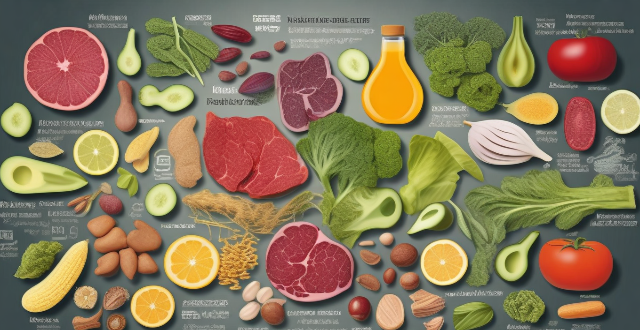
How does diet affect personal health ?
The article discusses the importance of a healthy diet in maintaining good health. It explains what constitutes a healthy diet and its benefits, such as reducing the risk of chronic diseases, improving mental health, managing weight, strengthening the immune system, and improving sleep quality. The article also provides tips for maintaining a healthy diet, including eating a variety of foods, limiting processed foods, watching portion sizes, being mindful of eating habits, getting enough sleep, and staying active.

In what ways does poor personal hygiene impact mental health ?
Poor personal hygiene can negatively affect mental health by causing decreased self-esteem, social isolation, and exacerbating symptoms of mental health disorders. It is important to maintain good hygiene habits for overall well-being.

How does climate change affect children's mental wellbeing ?
Climate change has a significant impact on children's mental wellbeing, leading to anxiety, fear, emotional distress, grief, and loss. However, by educating children about the issue, providing access to mental health services, and building strong communities, we can help mitigate these effects and support children's overall wellbeing.

What impact has the pandemic had on mental health and well-being ?
The COVID-19 pandemic has significantly impacted mental health and well-being, leading to increased stress, anxiety, depression, insomnia, and substance misuse. Factors such as fear of infection, financial instability, social isolation, grief, and disruption of daily routines contribute to these issues. The situation emphasizes the need for accessible mental health services and support systems to address psychological needs during this challenging period.

Can physical activity improve mental health ?
Physical activity has been found to significantly improve mental health by enhancing self-efficacy and stress self-management skills. Research shows that engaging in physical activities can lead to a sense of accomplishment, boosting an individual's confidence in their abilities, which in turn fosters better stress management and contributes to enhanced mental well-being. This relationship is particularly important for adolescents, a demographic vulnerable to mental health challenges. Future research should focus on identifying specific types of physical activities that have a greater potential to enhance these skills, guiding the development of targeted interventions aimed at improving mental health through physical activity.

How does stress affect women's mental health ?
This text discusses the effects of stress on women's mental health, including anxiety and depression, sleep disturbances, emotional eating, low self-esteem, difficulty concentrating, irritability and mood swings, substance abuse, and physical health issues. It emphasizes the importance of self-care practices to manage stress effectively.

How does exercise improve mental health ?
The article discusses how exercise improves mental health by reducing symptoms of depression and anxiety, improving mood, and enhancing cognitive function. It highlights the release of endorphins, regulation of neurotransmitters, stress reduction, increased energy levels, better sleep quality, enhanced self-esteem, improved memory and attention, reduced risk of cognitive decline, and promotion of neuroplasticity as mechanisms through which exercise positively impacts mental well-being. The conclusion emphasizes the importance of regular physical activity for overall well-being and advises consulting a healthcare professional before starting any new exercise program.

How does climate change impact mental health ?
Climate change has a multifaceted impact on mental health, including direct effects such as trauma from extreme weather events and environmental degradation, and indirect effects like economic strain and social disruption. Mitigating this impact involves raising awareness, strengthening community resilience, investing in mental health services, advocating for policies that address both climate change and public health concerns, and encouraging sustainable practices.

How does exercise contribute to mental rejuvenation ?
Exercise plays a crucial role in mental rejuvenation by releasing endorphins, improving blood flow, enhancing neuroplasticity, reducing stress, improving sleep quality, facilitating social interaction, and boosting self-esteem. Regular physical activity can significantly contribute to improved cognitive functions, emotional stability, and overall mental well-being.